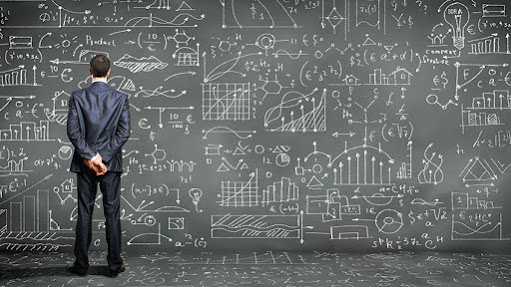How to learn Data Science?
Data Science has become one of the most sought-after jobs in the IT industry. Most people are trying to acquire this skill but they don’t know where to start. In this blog, I will guide you through every step in your journey of becoming a Data Scientist. Today, the internet has become an integral part of our life. Every day a large amount of data is generated by humans. The data generated is directly proportional to the wearables, mobile communications, social media sites, Google search, that everyone uses these days. Every aspect of our life is converted into data. The major disadvantage of this huge abundance of data is finding insights in them and for that Data Science comes in handy.
Data Science helps you use information from the past to make decisions in the present to change the future.
In simple terms, Data Science is a field that is a combination of mathematics, technology, and analytics to produce meaningful patterns and insights from the unstructured data. It helps organizations to understand the customer requirements and make smarter business decisions that will help in the growth of the organization. It also helps to analyze certain risk scenarios using predictive analysis and become forewarned. It is estimated that there will be an increase in demand for Data Scientist in the next few years.
Before, jumping on to the nitty-gritty of Data Science, I would recommend that you start with the building blocks of Data Science. The first step is to learn various concepts of mathematics before jumping onto machine learning algorithms. It will give you a complete understanding of how the machine learning algorithm works. The most important concepts that are required for learning Data Science are –
- Integrals - The concepts of Integrals in
hypothesis testing and the probability distribution is required to be learned.
You don’t have to become an expert in Integrals but simply try to understand
the basic concepts of Integrals and practice problems to grasp what you have
learned.
- Statistics - It is one most important concepts of mathematics that are
required for Data Science. After all, a data scientist is a modern-day
statistician and machine learning mostly comprises of statistics. You have to
focus a lot on statistics and practice many problems to get a clear
understanding.
- Linear Algebra- It is used in recommendation systems and principal component analysis. Try to understand the concepts of linear algebra.
The next step is to learn various programming languages for the implementation. The various programming languages required for Data Science are –
- Python- You should learn the
fundamentals of Python, control structures, data structures, OOPs concepts, and
module creation. Knowing how to code in Python is not enough, you should also
learn the software engineering concepts to write modular code. After learning
the language, you have to learn Pandas, which is the most important library of
Python that is meant for data analysis and manipulation.
- R - R is specifically designed for data analysis and data
manipulation in Data Science. It is the most widely used programming language
in Data Science due to its ingenuity and wide community support.
- SQL - It is the most crucial skill that every person in the IT industry should have even if you don’t aspire to be a Data Scientist. Most people underestimate the importance of SQL and later, they realize their mistakes in their careers. Try to build a solid understanding of SQL concepts.
There is a famous saying – A picture is worth a thousand words. Data visualization is one of the most important things that people should know while learning Data Science. One should learn the various visualization techniques of data visualization and where to use them.
After learning the building blocks of Data Science, you will move on to machine learning algorithms and concepts. I will help you to understand how the algorithms work and where to use them. The various machine learning algorithms that are required in Data Science are - Linear Regression, Logistic Regression, Naive Bayes, Decision Trees, Support Vector Mechanism, and so on. Similarly, you will also have to understand various machine learning concepts such as Bia, Variance TradeOff, Bootstrap Sampling, AUC, ROC, and so on for learning Data Science.
By this point, you have an understanding of various skills required for Data Science. At this point start exploring mathematics concepts and the programming languages required for data science.
Watch this space for more. I will be there to resolve all your doubts and queries. Your Data Science journey begins - not today, not tomorrow but NOW!

Comments
Post a Comment